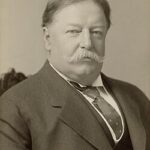The Decision to Reform Government Hiring
President William Howard Taft championed comprehensive civil service reform during his presidency from 1909-1913. His administration extended merit-based protections to over 35,000 additional federal positions. This decision represented the largest expansion of civil service protections since the Pendleton Act of 1883.
Breaking the Spoils System
Taft’s civil service reform directly challenged the entrenched “spoils system” of political appointments. 📊 His reforms covered positions in customs houses, internal revenue offices, and postal services nationwide. The president believed qualified individuals should serve based on competence, not political connections. These changes removed thousands of jobs from political patronage control.
Implementation and Scope
The expansion required comprehensive examinations for federal positions. ⚖️ Taft’s administration established standardized testing procedures and qualification requirements. Civil service commissioners gained authority over previously exempt positions. Local postmasters, deputy collectors, and clerks now faced merit-based selection processes. This systematic approach ensured consistent application across all federal departments and regional offices.
Impact:
Immediate Government Transformation
Taft’s civil service reform created immediate improvements in federal administration efficiency. 📈 Government departments reported higher quality personnel and reduced turnover rates. Qualified professionals replaced political appointees lacking relevant experience. The reform eliminated widespread corruption in hiring practices across multiple federal agencies.
Long-term Political Consequences
The expansion fundamentally altered American political patronage systems. Political parties lost thousands of positions traditionally used to reward supporters and maintain loyalty. 🔥 This change sparked significant resistance from party bosses and political machines nationwide. However, the reform strengthened public confidence in government competency and fairness.
Lasting Legacy for Modern Government
Taft’s civil service reform established principles still governing federal employment today. The merit system became the foundation for professional government service. 🌍 His reforms influenced state and local governments to adopt similar merit-based hiring practices. Modern civil service protections trace directly to Taft’s courageous expansion of professional standards. This decision ranks among the most beneficial government reforms in American history, creating efficient and ethical public administration.
